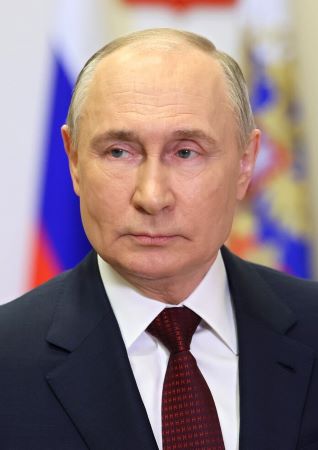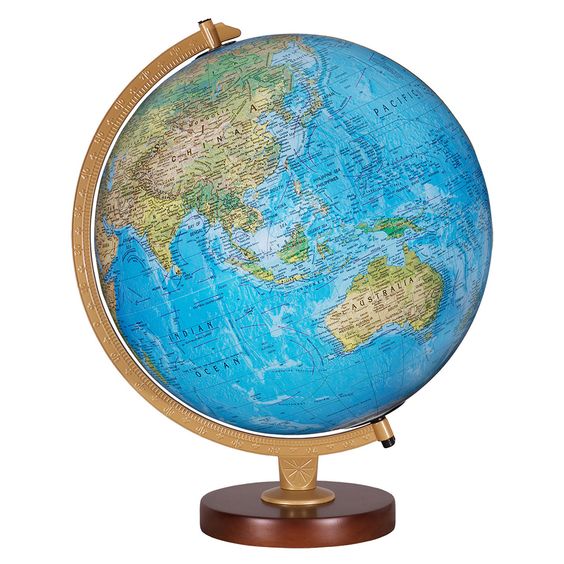
Putin can’t afford to stop fighting. To do so would mean either crashing the economy or handing it over to the Chinese.
By Tom Arms
Putin can’t afford to stop fighting. To do so would mean either crashing the economy or handing it over to the Chinese. But then the Chinese might end up controlling it anyway.
Russia is now a war economy. Six percent of GDP and 40 percent of the government budget is spent on “special operations” In Ukraine. Millions are employed at top dollar jobs in armaments factories that have sprung up over the past two years.
The lives of Russian soldiers have been commoditized. Families with a dead son receive $53,800. An injured son costs Putin’s Treasury $32,280. It is estimated that so far the war has cost $18 billion in compensation alone.
War is the most financially unproductive activity known to mankind. With what it costs to build a missile you can construct a building which can be used as a school to educate future generations or a factory to produce goods for export. When the missile blow up it is gone. And so is the building which it blew up and the people who can rebuild it.
But in the short-term war can be good for the economy. That is the case in Russia today. Putin was recently able to boast that at 2.6 percent, the Russian economy was growing faster than all the other European economies combined. But that growth must be set against inflation of seven percent—and rising—and interest rates at an unsustainable 16 percent in an effort to prevent runaway inflation.
War is the most financially unproductive activity known to mankind. With what it costs to build a missile you can construct a building which can be used as a school to educate future generations or a factory to produce goods for export. When the missile blow up it is gone. And so is the building which it blew up and the people who can rebuild it.
Sanctions have contributed to the boom economy by forcing Russians to develop home grown alternatives, increase imports from Asian friends and the Global South, and/or pay inflated prices for Western goods imported through third-party intermediaries such as Turkey, the United Arab Emirates or Hong Kong. The growth may also be helped by the imposition of financial controls that make it impossible to take money out of the country.
That may, however, be coming to an end. President Joe Biden recently tightened the sanctions screw by expanding the powers of the US Treasury to allow it to cut off any banks in third countries deemed to be helping the Russian military-industrial complex. Turkish and UAE banks have already started cutting back on their facilities for Russian clients. Chinese banks are starting to follow suit, or insisting that all deals are made in Yuan.
Vladimir Christyukhin, First Deputy Chairman of the Bank of Russia, has warned that the problems created by the latest financial sanctions will create “existential” problems with international payments unless Moscow can find another workaround. Suggestions include switching to crypto-currencies or the Chinese Yuan.
The latter would increase Chinese influence over the Russian economy. But an even greater opportunity for the Chinese is Russia’s need for investment in the civilian economy. In 2020, the Russian government earmarked $400 billion for infrastructure projects. Almost all that money has been diverted to the war effort. In 2019 the number of Greenfield site investments totalled 330. In 2023 there were just nine.
So far Putin has managed to restrict to the minimum the impact of the war on the average Russian consumer. And in some cases the war has substantially increased their incomes. But the lack of investment in the civilian economy can only be postponed for so long before average Russians begin to notice and complain.
The St Petersburg International Economic Forum—Russia’s premier trade exhibition—was, according to the Russians, attended by 130 countries. But most of these were from the Global South and either unable or unwilling to invest in Russian projects. The Chinese are almost alone in having both the means and the political will to invest in Russia.
Even if the war were to end tomorrow with Putin in control of the Donbas Region and Crimea, the Chinese would be well-placed to help rebuild the conquered territories and defrost the Russian infrastructure projects that have been put on ice. As usual, the Chinese are playing the long game.
 World Review
World Review
Unedifying train crash. That is possibly the most charitable portray of President Joe Biden’s performance in Thursday night’s debate. The 81-year-old candidate had a simple task: Don’t look old and expose Trump as the convicted felon and serial liar that he is. He failed.
The result is that Joe Biden now faces a crushing tsunami of party and public opinion to perform his final act of public service: step aside and let a younger Democratic leader shoulder the job of preventing a dangerous demagogue from returning to the White House.
The problem is that there is no mechanism for allowing him to do so. The US constitution does not specify how presidential candidates are chosen. In fact, the founding fathers were dead set against the creation of political parties which they condemned as “factionalism.”
But human nature being what it is political parties quickly emerged and politicians hived off into camps labelled Republican, Democrat, Whig, Federalist, Nativists, and Progressives…
From the early years of the 19th century until relatively modern times, the party machinery in each state would select delegates to attend a national convention where a presidential candidate would emerge from a series of knock-out ballots.
The first state primaries were not held until 1901 when Florida broke ranks with convention. Between 1901 and 1968 only twelve states held primaries which pledged their convention delegates to a particular candidate. Then came the chaos of the 1968 Chicago Democratic National Convention with delegates deadlocked while anti-Vietnam War demonstrators rioted outside.
To avoid a repetition of this unedifying spectacle the Democratic Party leadership decided to extend the primary system. The Republican Party followed suit. By 1992 Democrats had primaries in 40 states and Republicans in 39 and presidential conventions had been converted from a week of back-room horse trading and multiple ballots to a coronation party.
If Biden steps aside then the Democratic Party will have to revert to the pre-1968 format at its convention in (ironically) Chicago, on 19-22 August. The problem is that there are few—if any—people alive today who attended an old style nominating convention. Old rule books will need to be pulled out or archives, dusted off and studied thoroughly.
They have just over a month to prepare, and that is if Biden decides to hand in his notice today. Presidential contenders have the same time frame to start securing delegates’ support. And then, assuming all goes well on the night in Chicago, the party has only three months to unite behind a new candidate and persuade the American electorate that their choice is better than a lying convicted felon.
French voters troop to the polls on Sunday for the first round of parliamentary elections that are likely to open the door to the country’s far-right.
The latest opinion polls put Marine Le Pen’s National Rally well ahead with 37 percent of the vote. Not enough for the absolute majority so it will probably need to form a coalition with the Gaullist Les Republicains (eight percent) and some of the smaller parties (five percent). President Macron’s centrist Ensemble Alliance Renaissance lags far behind at 19.6 percent.
But a huge fly in the French political ointment is the 29 percent who say they will vote for the far-left New Popular Front led by former Trotskyist Jean-Luc Melenchon. It appears that the unpalatable choice for French voters is between the extremes of left and right.
Marine Le Pen has worked to shed the extremist label earned by her father. Anti-Semitism has been jettisoned. Euro-skepticism and anti-Atlanticism have been watered down. So has pro-Putinism. But a ruling earlier this year by the Council of State, France’s highest court for administration, confirmed that National Rally could be called “extreme right.”
This is mainly because of the party’s immigration policies. These include a proposal to deny French citizenship to children of foreign-born parents, a bar on dual nationals from sensitive government posts and limitations on welfare payments for immigrants.
The New Popular Front is a broad church far-left party dominated by the communists and the Socialist Party. It wants to return the retirement age to 60; increase the minimum wage by 14 percent; re-introduce a wealth tax and bring in a new tax on excess profits. The party’s policies are seriously worrying the financial community at a time when the French government is running record deficits.
In the past the French left has been splintered into dozens of competing left-wing parties. This has helped to keep out the far-right as it provided French voters with scope for tactical voting. The creation of the New Popular Front has squeezed the center and left voters with a choice they would rather not have to make.
The sixth anniversary of the Brexit vote recently passed virtually unnoticed by the three main parties competing in the British general election—Labor, Conservatives and Liberal Democrats.
This is despite the fact that the Office of Budget Responsibility calculates that the British economy is four percent worse off as a result of leaving the European Union.
Furthermore Britain’s voice on the international stage has been substantially diminished by its departure from the council chambers of the world’s second largest trading bloc. This at a time when events in Gaza and the Middle East make it more essential that British experience and interests are utilized and protected.
The Liberal Democrats have said that they would rejoin the EU Single Market with the long-term objective of rejoining Europe. But the traditional standard bearer of European interests in Britain has rowed back on its previous election pledge for a second referendum. This is despite the fact that polls consistently show 50 percent of the British public now realize the mistake of 2016 and want to rejoin the EU while 35 percent are determined to stay out.
The Lib Dem thinking would appear to be politically sound. The decision to leave the EU was made in a referendum and confirmed in two subsequent general elections. It remains a politically toxic and divisive issue from which the nation needs time to heal.
The Lib Dems EU policies are mirrored by most of the smaller parties likely to be seen in the Commons benches after the vote on July 4th. The Greens, Plaid Cymru, Alliance Party and SNP are all committed to rejoining the Single Market and/or the Customs Union with the eventual aim of a return to full membership of the European Union.
There is only one party that is committed to immediately rejoining the EU. Led by former Tory MEP Brendan Donnelly, the Rejoin the EU Party, was launched in 2020. It is small. The only won their first—and so far only—council seat this year and have candidates standing in only 26 constituencies.
But then UKIP started off as a tiny protest movement and ended up pushing the conservatives into a disastrous referendum. At the moment EU Rejoin’s campaign policy is to avoid standing in constituencies where a pro-Europe candidate has a chance of winning. But if the party grows it could have the same impact on the Lib Dems and Greens that UKIP had on the Tories.
The biggest threat to Iran’s clerical rulers is voter apathy. That is why the turn-out figures will be what counts most in Friday’s presidential elections.
The number of people who have turned out to cast their ballot has dropped in successive recent elections. This in turn has seriously undermined the credibility of the Islamic government.
What is the point, the average voter asks, if the real decisions are made by the unelected Supreme Council led by the unelected Supreme Leader Ayatollah Ali Khameini. And, most important of all, why bother if all the candidates for elected office—especially the president—are vetted by the Supreme Council to insure that they possess the correct Islamic credentials.
Fear of voter apathy could explain why the council has allowed reformist Massoud Pezeshkian, a former heart surgeon and health minister, to stand for the presidency. In normal times, he would most likely not have made to the interview stage. Pezeshkian, has described as “immoral” the actions of the morality police who enforce Iran’s strict dress code. He also wants to improve relations with the West and revive nuclear talks in the hope of lifting sanctions that have crippled the Iranian economy.
As Iranians prepared to vote, the latest opinion polls put him just ahead of the two leading hardline candidates Mohammad Baquer Qalibaf and Saeed Jalili.
But there have been reformist presidents in the past. Two of them—Hassan Rouhani and Mohammad Khatami have endorsed Pezeshkian. Both of them failed to break the theocratic stranglehold because real power resides not in government offices in Tehran, but in the mosques of the holy city of Mashhad.
___________________
 Tom Arms is foreign editor of Liberal Democrat Voice and author of “The Encyclopaedia of the Cold War” and “America Made in Britain.”
Tom Arms is foreign editor of Liberal Democrat Voice and author of “The Encyclopaedia of the Cold War” and “America Made in Britain.”